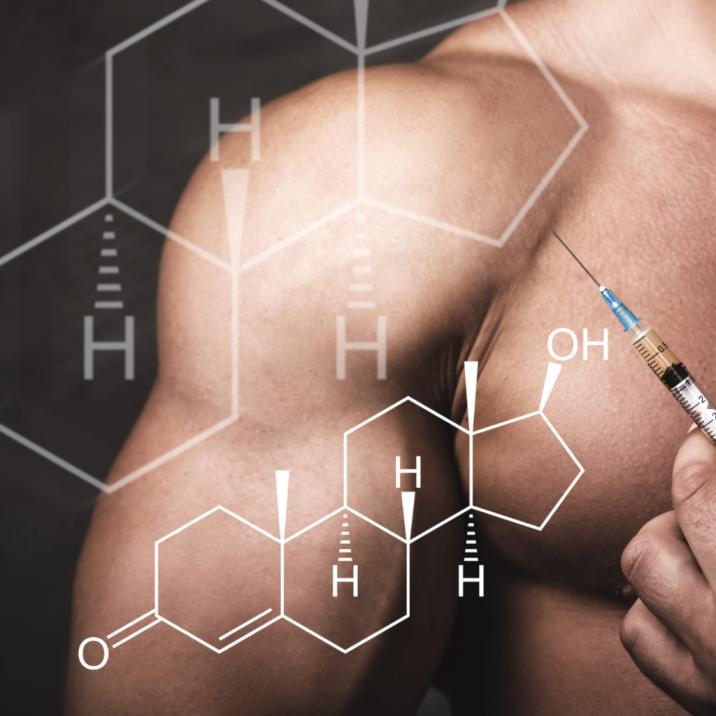Understanding Low Testosterone: Causes, Symptoms, and Treatment Options for Better Health
Explanation of what constitutes low testosterone (low T) Testosterone is a key hormone for everyone. It helps build muscles, keep bones strong, manage mood, and support sexual health. Low testosterone, or low T, happens when there isn’t enough of this hormone. It can make you feel tired, lower your sex drive, weaken your muscles, and affect your mood. In men, it can also cause erectile issues and weaker bones. Doctors use blood tests to check testosterone levels and find out if it’s too low. Treatment might involve lifestyle changes, medication, or hormone therapy to balance hormone levels and improve health. What is Low Testosterone? Low testosterone, or low T, means your testosterone levels are lower than usual. It can affect both men and women, but it’s more common in older men. Symptoms include feeling tired, having less interest in sex, weak muscles, and mood swings. In men, it can also cause issues like erectile problems and weaker bones. Doctors use blood tests to check testosterone levels and diagnose low T. Treatment might involve lifestyle changes, medications, or hormone therapy to get testosterone levels back to normal and improve health. Age-Related Decline As people age, testosterone levels drop, leading to less muscle, lower sex drive, tiredness, and mood swings. Women also experience lower testosterone with age, which can affect their energy and sex drive. Though this drop is normal, a significant decrease can affect how you feel and live. Making lifestyle changes or using medical treatments can help improve your well-being. Medical Conditions Medical conditions can lead to low testosterone levels. Diabetes and obesity can lower testosterone by affecting hormone balance. Chronic diseases, like kidney or liver problems, can also impact testosterone production. Hormonal issues with the pituitary gland, which controls hormones, can reduce testosterone. Some medications, such as steroids, may lower testosterone as a side effect. Treating these health problems is important to manage low testosterone. Seeing a doctor can help find and address the medical conditions causing low testosterone. Lifestyle Factors Lifestyle choices can affect testosterone levels. Eating too many processed foods and not enough nutrients can lower testosterone. Not exercising and being inactive can cause weight gain and lower hormone levels. High stress raises cortisol, which can reduce testosterone. Drinking too much alcohol and smoking can also lower testosterone. Not getting enough sleep can upset hormone balance. To keep testosterone levels healthy, eat better, exercise regularly, manage stress, limit alcohol, and quit smoking. Medications and Treatments Medications and treatments can help with low testosterone levels. Hormone replacement therapy (HRT), like testosterone shots, patches, or gels, can raise testosterone. Other medicines can help with related health issues. Improving your lifestyle by eating better, exercising more, and managing stress can also be beneficial. Addressing problems like sleep apnea or other health conditions can boost testosterone levels. Always consult with a healthcare provider to find the right treatment for you. Regular check-ups may be needed to ensure the treatment is working effectively. Symptoms of Low Testosteron Low testosterone symptoms can make you feel tired, lose muscle, and gain weight. You might have less interest in sex, problems with erections, and mood changes like feeling depressed or irritable. Other issues can be difficulty focusing, memory problems, and weaker bones, which can lead to more fractures. Sleep problems, like trouble sleeping, may also happen. Symptoms can vary, so it’s important to see a healthcare provider for a proper diagnosis and treatment if you think you have low testosterone. Physical Symptoms Physical symptoms of low testosterone include feeling tired, losing muscle, and gaining body fat. You might find it harder to do physical tasks and notice weaker bones that can break more easily. Other signs are a lower sex drive and trouble with erections. You may also see changes in how fat is distributed in your body. Low testosterone can cause sleep problems, like trouble sleeping. If you have these symptoms, it’s important to see a healthcare provider for a proper diagnosis and treatment. Medical Evaluation A medical evaluation for low testosterone includes several steps. Your doctor will talk to you about your symptoms, medical history, and lifestyle. They will do a physical exam and may ask about other health issues or medications. Blood tests measure testosterone levels, usually taken in the morning when levels are highest. If low testosterone is confirmed, more tests might be needed to find out why. This thorough approach helps your doctor make an accurate diagnosis and create a treatment plan that’s right for you. Treatment Options for Low Testosterone Treatment for low testosterone includes hormone replacement therapy (HRT) with injections, patches, gels, or pellets to boost testosterone levels. Improving your diet, exercising more, and managing stress can also help. Sometimes, fixing other health issues like sleep problems or chronic conditions can be beneficial. Medications might be used to treat related problems or boost natural testosterone production. Regular check-ups with your healthcare provider are important to adjust the treatment and make sure it’s working well and is safe for you.

